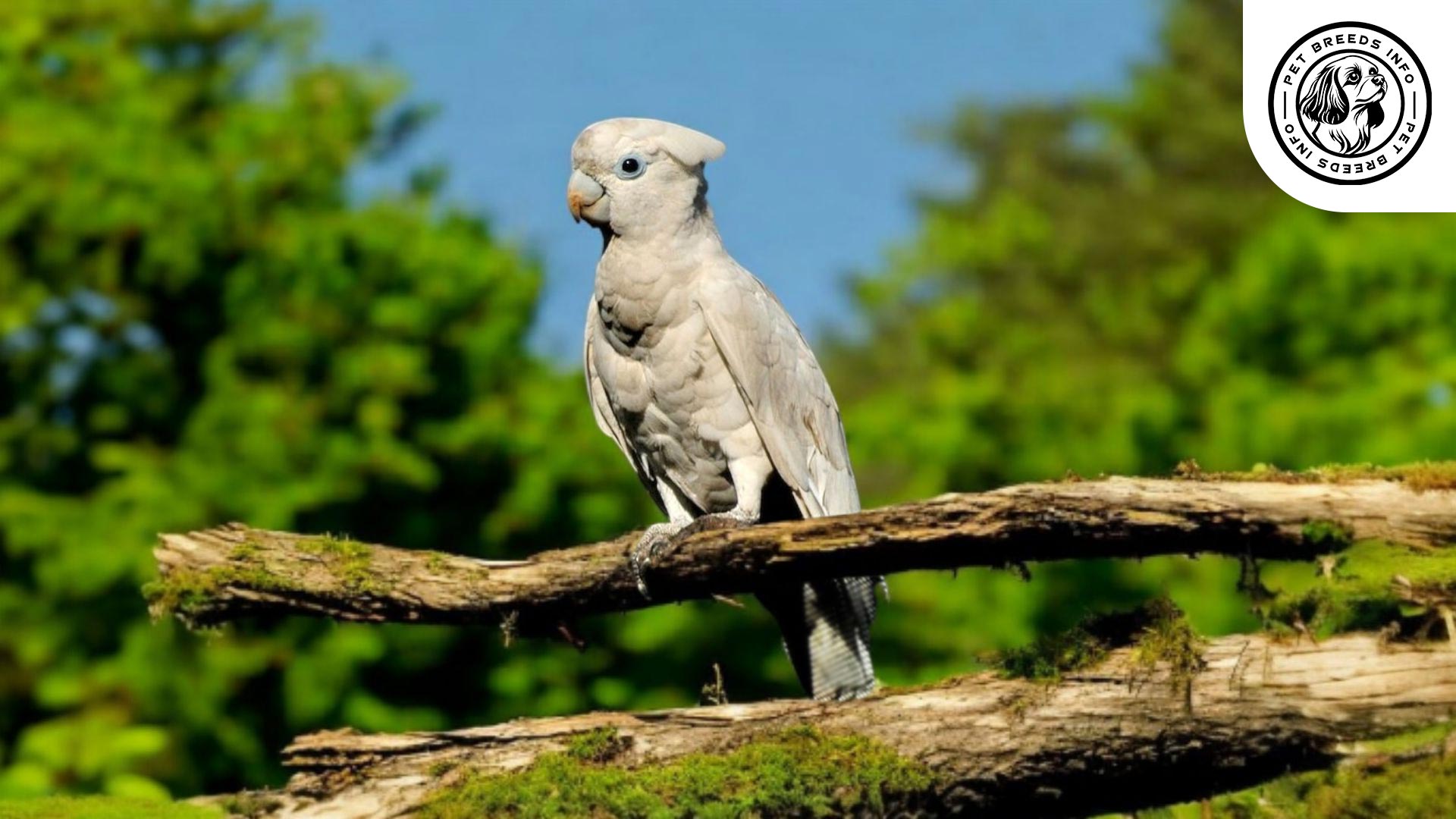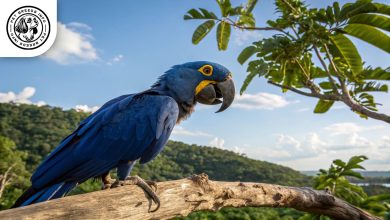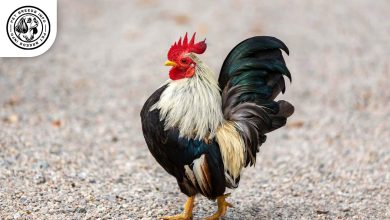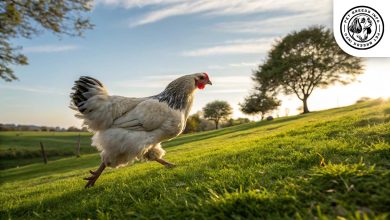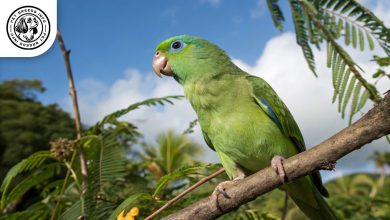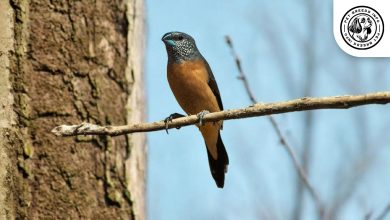Ducorp’s Cockatoo Bird: Personality, Lifespan, Food & Care
General Introduction of the Breed
Ducorp’s Cockatoo (Cacatua ducorpsii) is also known as the Solomon Cockatoo due to its native habitat in the Solomon Islands. This beautiful white parrot belongs to the cockatoo family and is admired for its gentle nature, intelligence, and strong bond with owners.
Ducorp’s Cockatoo was first described in the 19th century and has since gained popularity among avian enthusiasts due to its affectionate and social behavior. Though not as well-known as other cockatoo species, it makes an excellent companion bird.
Table of Contents
| Common Name | Ducorp’s Cockatoo |
| Scientific Name | Cacatua ducorpsii |
| Origin | Solomon Islands |
| Size | Medium; 12–13 inches (30–33 cm) |
| Lifespan | 40–60 years |
| Colors | Predominantly white with pale blue skin around eyes |
| Talking Ability | Moderate; can mimic simple words |
| Noise Level | High; vocal and attention-seeking |
| Social Behavior | Highly affectionate and social |
Physical Characteristics
Ducorp’s Cockatoo is a medium-sized parrot with an average length of 12 to 13 inches (30 to 33 cm) and a wingspan of approximately 28 inches (71 cm). It typically weighs between 300 to 400 grams.
Its plumage is predominantly white, with pale bluish skin around the eyes. Unlike some other cockatoos, its crest is modest and not as expressive. The beak is light grey, and the legs and feet are also grey. Its eyes are dark brown, adding to its expressive and intelligent appearance.
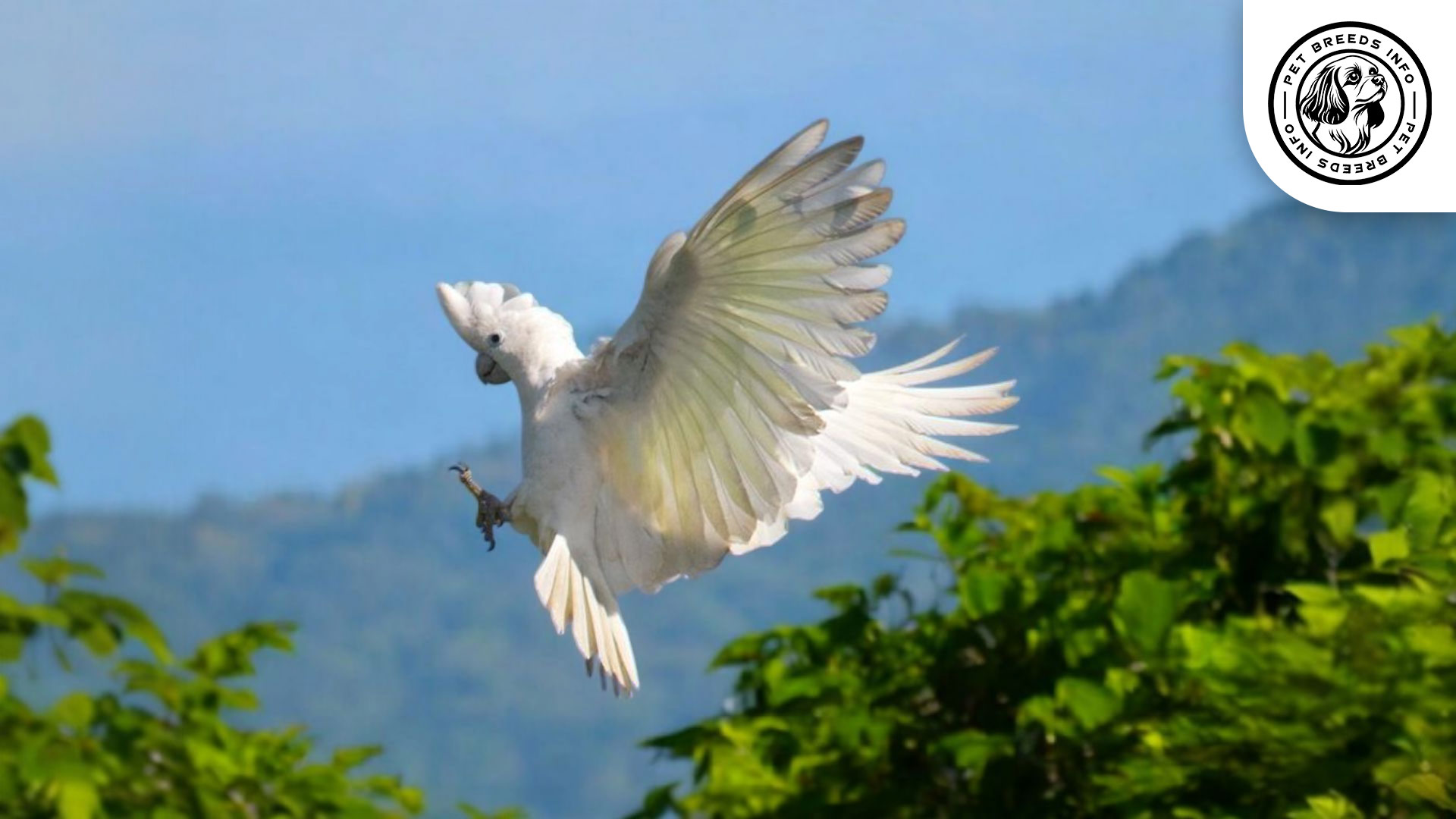
Personality and Temperament
Ducorp’s Cockatoo is known for its affectionate and gentle personality. It is highly intelligent and enjoys learning new tricks and commands. This breed thrives on interaction and forms deep bonds with its owner.
It is an energetic and playful bird that requires plenty of mental stimulation. It is also highly vocal and may call out for attention when left alone for too long.
While it is excellent with families, including children, its sensitive nature requires gentle handling and positive reinforcement training. It generally gets along with other birds but should be introduced carefully to avoid territorial disputes.
Care and Maintenance Requirements
This cockatoo requires daily exercise and mental enrichment. Providing a spacious cage and regular out-of-cage time is crucial. Toys, branches, and interactive activities help prevent boredom and destructive behavior.
It thrives in a clean, well-ventilated environment with moderate humidity. Sudden temperature changes should be avoided, as they can cause stress and health issues.
Read More: Gloster Canary
Grooming includes regular nail trimming, occasional beak maintenance, and bathing or misting to keep its feathers clean. Ear and eye cleanliness should also be monitored.
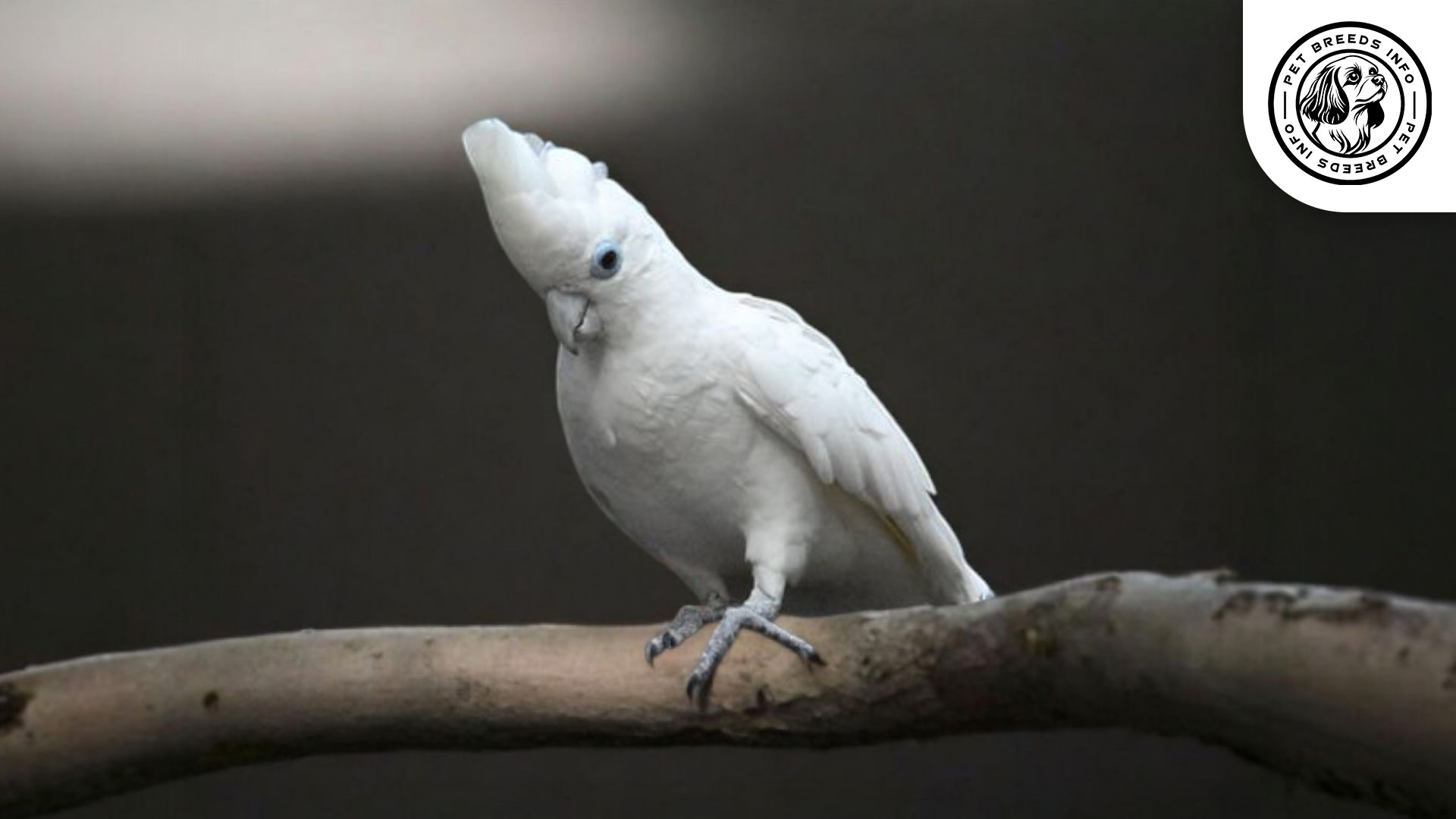
Diet and Nutrition
A balanced diet for Ducorp’s Cockatoo includes high-quality pellets, fresh fruits, vegetables, nuts, and seeds. Fresh water should always be available.
Foods to avoid include chocolate, caffeine, avocado, salty foods, and excessively sugary snacks, as they can be toxic to birds.
Serving portions should be balanced to maintain a healthy weight, with approximately two scheduled feeding times per day.
Health and Common Medical Issues
Ducorp’s Cockatoos are generally healthy birds but can be prone to certain avian diseases, including psittacine beak and feather disease (PBFD), fungal infections, and respiratory conditions.
Feather plucking or excessive grooming can occur if the bird experiences stress, loneliness, or poor diet. Regular veterinary checkups help in monitoring overall health.
With proper care, this bird has a lifespan of 40 to 60 years, making it a long-term commitment.
Read More: Lincolnshire Buff Chicken
Training and Behavior Management
Training Ducorp’s Cockatoo requires patience and positive reinforcement. This intelligent bird responds well to praise and treats when learning commands.
Early socialization is crucial to prevent excessive screaming and unwanted behaviors. Consistency in training sessions is recommended.
Teaching it to entertain itself with toys can help reduce dependency on constant human interaction and minimize negative behaviors.
Interaction with Other Animals and Humans
Ducorp’s Cockatoo is friendly with humans and enjoys being part of family interactions. It can live harmoniously with well-socialized pets but supervision is necessary to prevent stress.
It is affectionate and thrives on companionship, making it ideal for individuals or families who can dedicate time daily for interaction.
Due to its social nature, it does not do well if left alone for long hours, which may lead to stress-related behaviors.
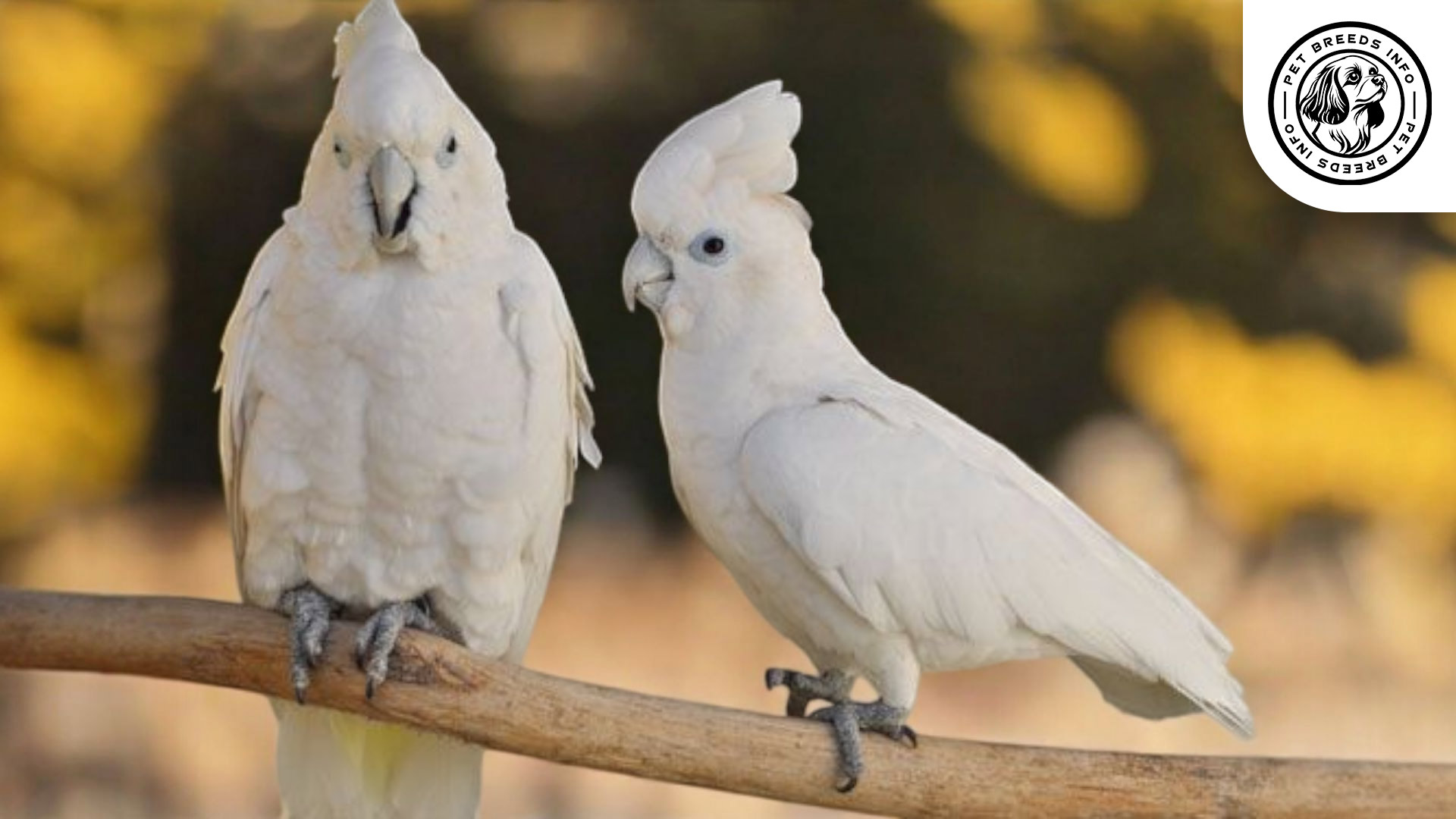
Price and Availability
The cost of a Ducorp’s Cockatoo varies between $800 to $2,500, depending on the breeder, age, and health of the bird. Adoption centers and specialty avian breeders are the best sources for acquiring one.
Potential owners should ensure they are purchasing from a reputable breeder who provides proper documentation and health records.
Adopting from bird rescue organizations is also a great option, offering homes to cockatoos in need of care.
Read More: Derbyshire Redcap Chicken
Conclusion and Final Thoughts
Ducorp’s Cockatoo is an affectionate and intelligent bird that makes a wonderful pet for dedicated owners. It requires daily attention, mental stimulation, and proper care to thrive.
This breed is ideal for individuals or families who can spend quality time bonding with their feathered companion. However, its long lifespan and social needs should be carefully considered.
Before choosing this breed, potential owners should be prepared for its vocal nature, need for companionship, and commitment to maintaining a healthy and engaging environment.
FAQ
Is Ducorp’s Cockatoo good for first-time bird owners?
It can be, but only if the owner can commit to its social and emotional needs daily.
How vocal is a Ducorp’s Cockatoo?
It is highly vocal and can scream for attention if left alone for long periods.
What is the ideal diet for Ducorp’s Cockatoo?
A balanced mix of pellets, fresh fruits, vegetables, nuts, and seeds, with fresh water always available.
How much space does a Ducorp’s Cockatoo need?
They require a large cage and daily out-of-cage time for exercise and mental stimulation.
Can Ducorp’s Cockatoo live with other pets?
Yes, with careful introduction and supervision, but it thrives best with human companionship.
